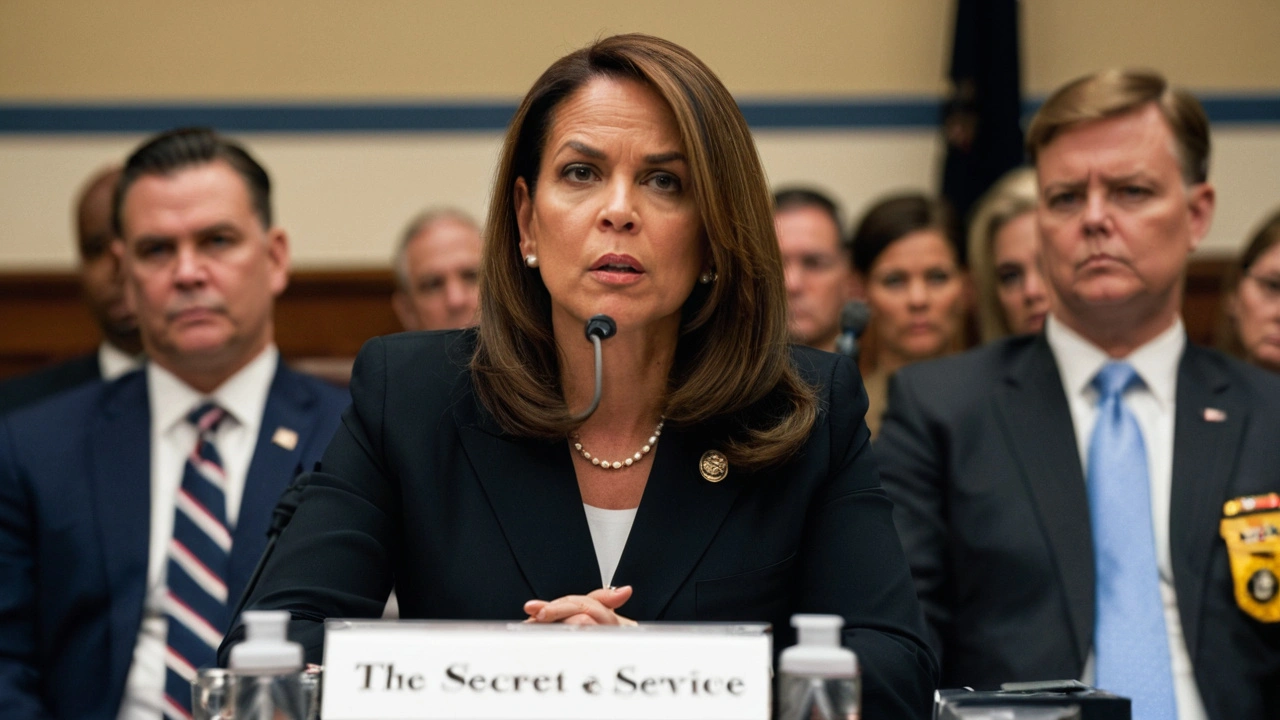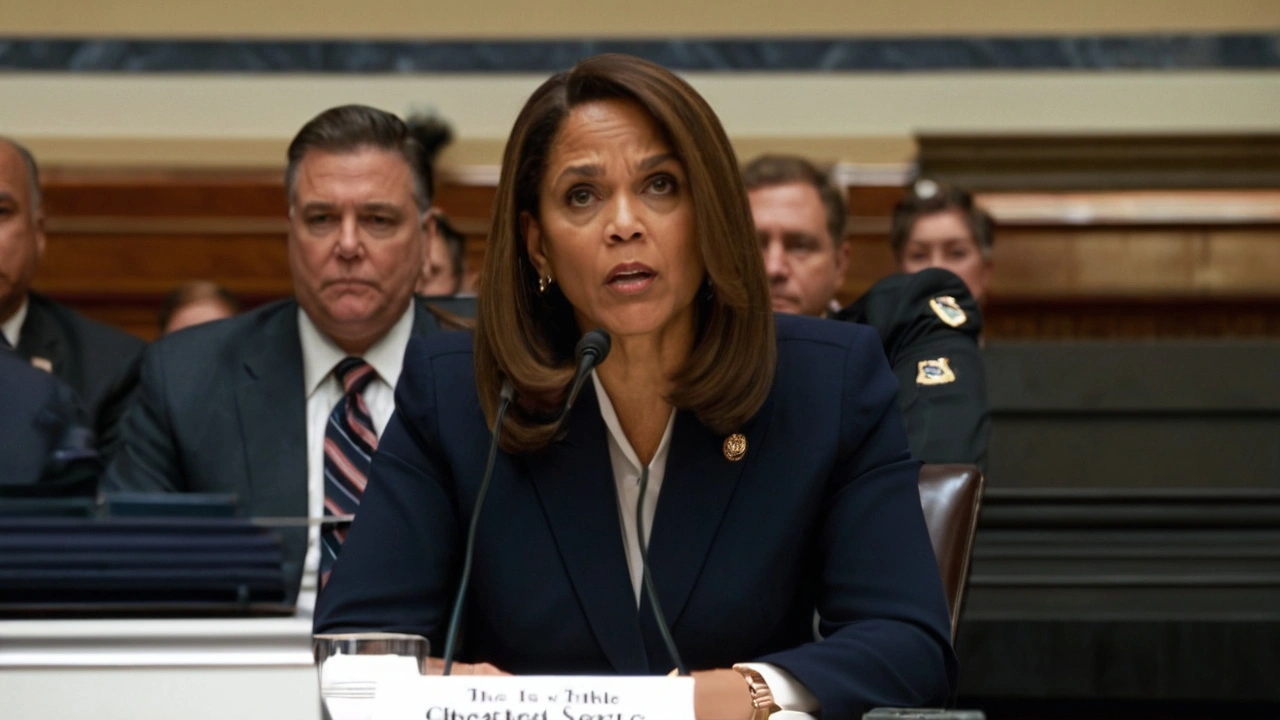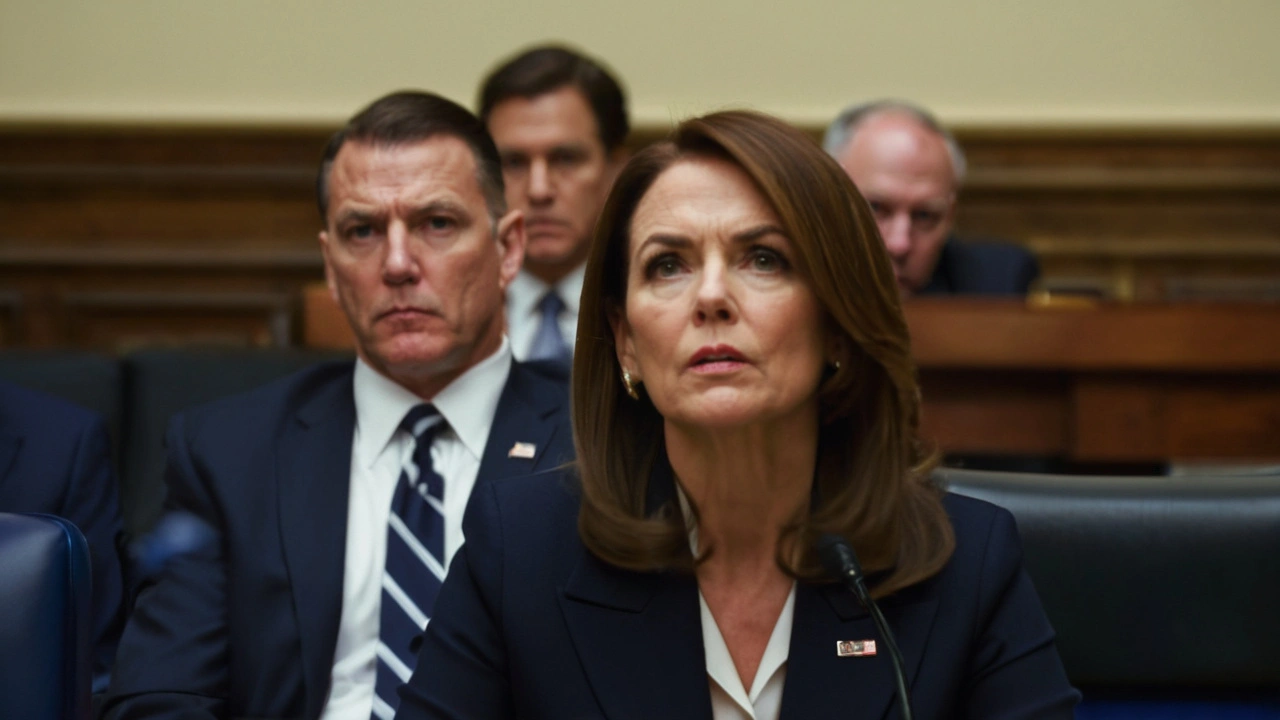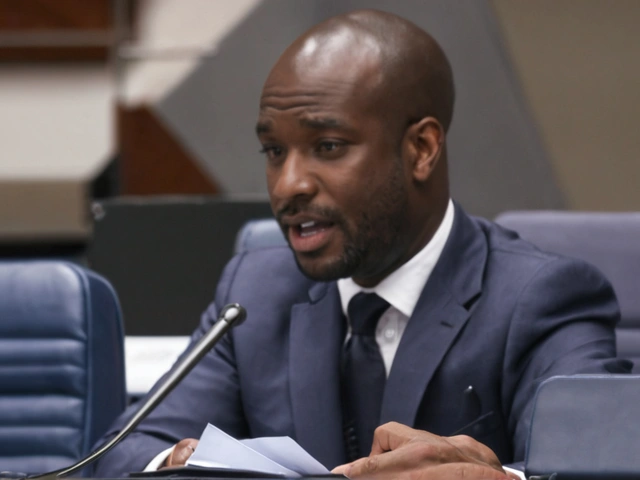
Secret Service Director Resigns Amid Controversy
The resignation of U.S. Secret Service Director Kimberly Cheatle has become the latest significant event in the world of political security. The announcement, made by the White House, follows intense scrutiny and fierce bipartisan criticism of the Secret Service after a disturbing security breach occurred during a rally featuring former President Donald Trump. The incident, which involved a shooter opening fire on July 13, has precipitated a bipartisan call for accountability within the agency designed to protect the nation's leaders.
As lawmakers raise their voices in concern, Cheatle's resignation speaks volumes about the gravity of the situation. In Washington, criticism was particularly vociferous from both sides of the aisle. South Carolina Republican Representative Nancy Mace was among the most vocal, even moving to compel a vote for Cheatle's impeachment. The urgency of the issue necessitates that the House conduct a vote on this resolution within just two legislative days, needing only a simple majority to pass the measure. This swift action highlights the scale of dissatisfaction with the agency's handling of the security at the rally.
House Oversight Committee Hearing
Kimberly Cheatle's resignation did not occur in a vacuum. In the interim between the incident and her resignation, Cheatle was subpoenaed to testify before the House Oversight Committee. Her appearance before this body was a moment of reckoning for the embattled director. During her testimony, Cheatle acknowledged the agency's significant failings in the lead-up to and during the rally. She accepted full responsibility for the security lapses, a move that, while commendable in terms of accountability, did little to stem the tide of criticism.
Lawmakers, led by Representative Mace, expressed their frustration and dissatisfaction with Cheatle's responses during this hearing. The lack of clear and comprehensive answers about what went wrong infuriated many, driving home the necessity for full transparency and reform. The fact that a shooter was able to open fire at such a high-profile event underscores the pressing need for immediate and thorough scrutiny of the agency's procedures and protocols.
Formation of Bipartisan Investigative Task Force
In response to the incident and the evident lapses in security, it was announced that a bipartisan investigative task force would be formed. This task force aims to delve deeply into the events leading up to and during the rally and to propose meaningful reforms to prevent a recurrence of such a breach. With subpoena powers, the task force is empowered to ensure a comprehensive investigation. By uncovering the facts and ensuring accountability, the task force seeks to restore confidence in the Secret Service's ability to protect national figures.
The security breach at the Trump rally cannot be viewed in isolation. It reflects broader concerns about the preparedness and efficacy of the Secret Service. Recent years have seen the agency come under scrutiny for various lapses, and this latest incident has brought these issues once again to the forefront.

The Broader Implications for National Security
The implications of this incident are far-reaching. Politicians, regardless of their party affiliation, rely on the Secret Service for their protection. An agency failure of this magnitude raises questions not only about the specific incident but about the overall state of security protocols. National security is predicated upon the idea that key figures are safeguarded at all times — an evident failure in this duty cannot be tolerated.
Furthermore, the bipartisan nature of the criticism speaks to a rare moment of unity in an otherwise deeply divided political landscape. The safety of national leaders is a concern that transcends party lines, highlighting the fundamental importance of the Secret Service's mission.
Future Steps and Reforms
Within Washington and beyond, there is a palpable sense that significant reforms are needed within the Secret Service. The resignation of Kimberly Cheatle is likely just the beginning of a broader effort to overhaul the agency. Part of this process will involve the work of the newly formed investigatory task force. One of its primary goals will be to identify specific failings and develop comprehensive recommendations for policy changes and procedural improvements.
This renewed focus on security reform may lead to substantial changes in how the Secret Service operates. Enhancing training protocols, revising security measures for high-profile events, and implementing stricter oversight are just a few areas likely to come under review.
The next few weeks and months will be crucial in determining the future direction of the Secret Service. The outcomes from the investigatory task force and subsequent legislative actions will play a pivotal role in shaping how the agency evolves. The bipartisan nature of the criticism and the collaborative approach to investigating the breach offer some hope that meaningful changes can be achieved.

Conclusion: Looking Ahead
The resignation of Kimberly Cheatle amid the fallout from the security breach at the Trump rally marks a significant moment in the ongoing efforts to ensure the safety of national leaders. As the U.S. Secret Service faces scrutiny, the establishment of a bipartisan investigative task force underscores the critical need for accountability and reform.
While the immediate future remains uncertain, the commitment from both sides of the political spectrum to address this issue head-on offers a glimmer of hope. The safety and security of the nation's leaders are paramount, and this incident serves as a stark reminder of the importance of unwavering vigilance and robust security measures.





